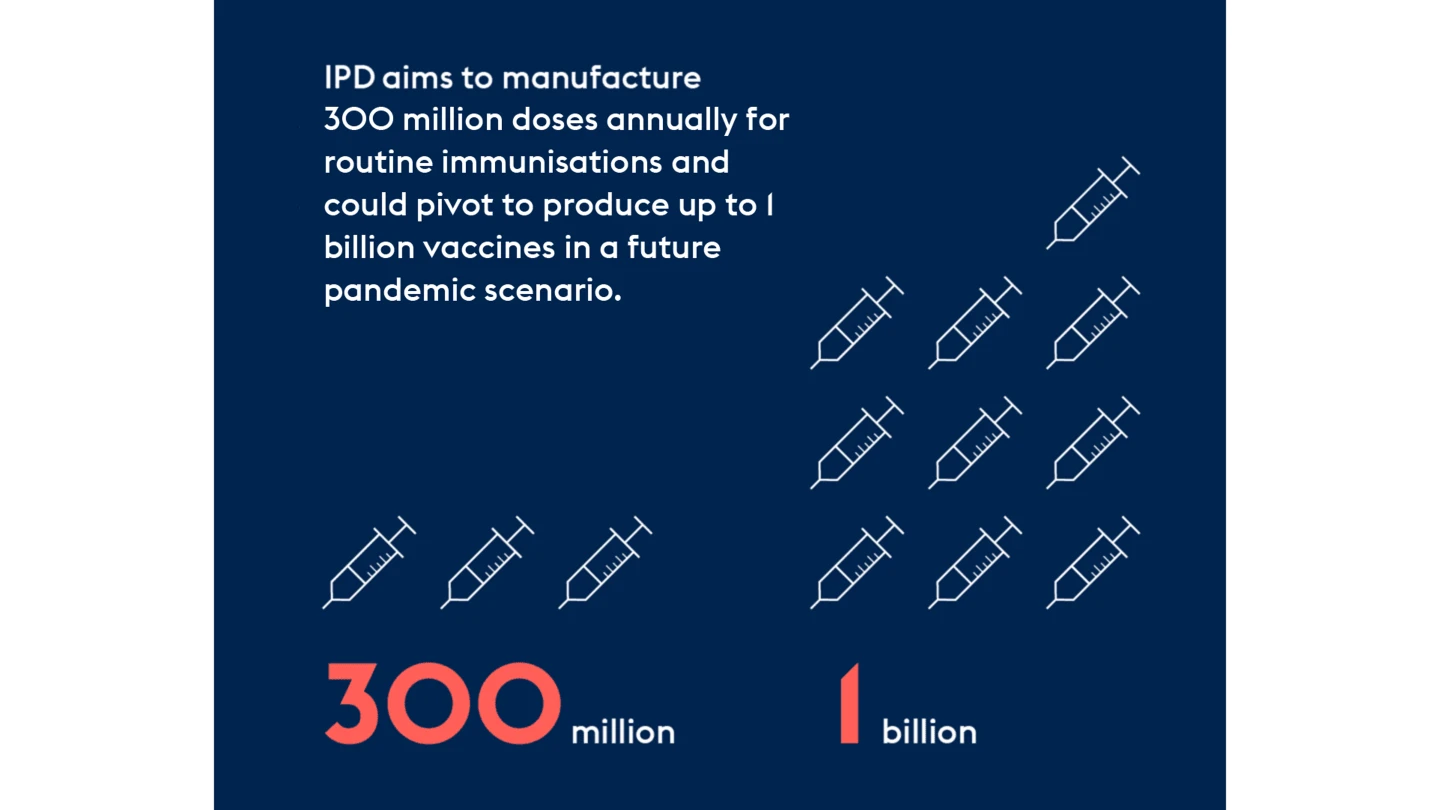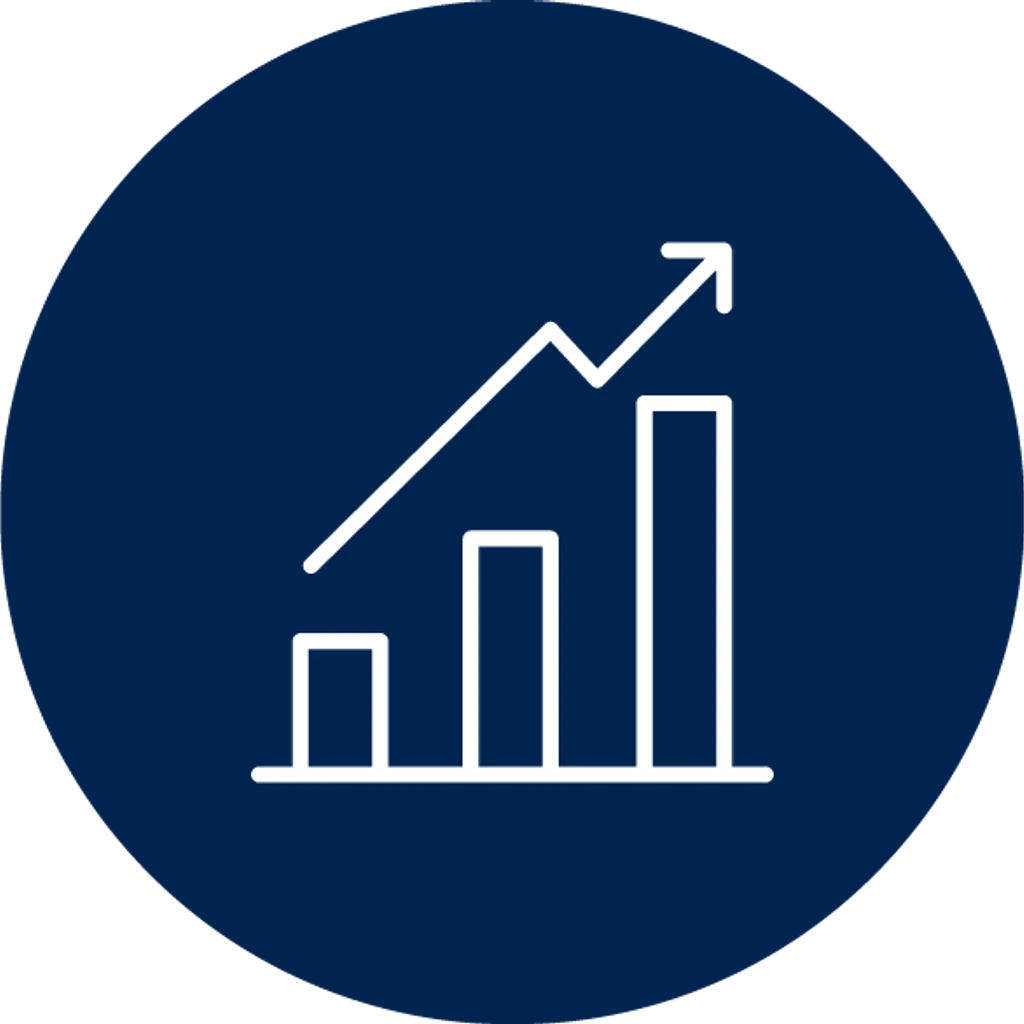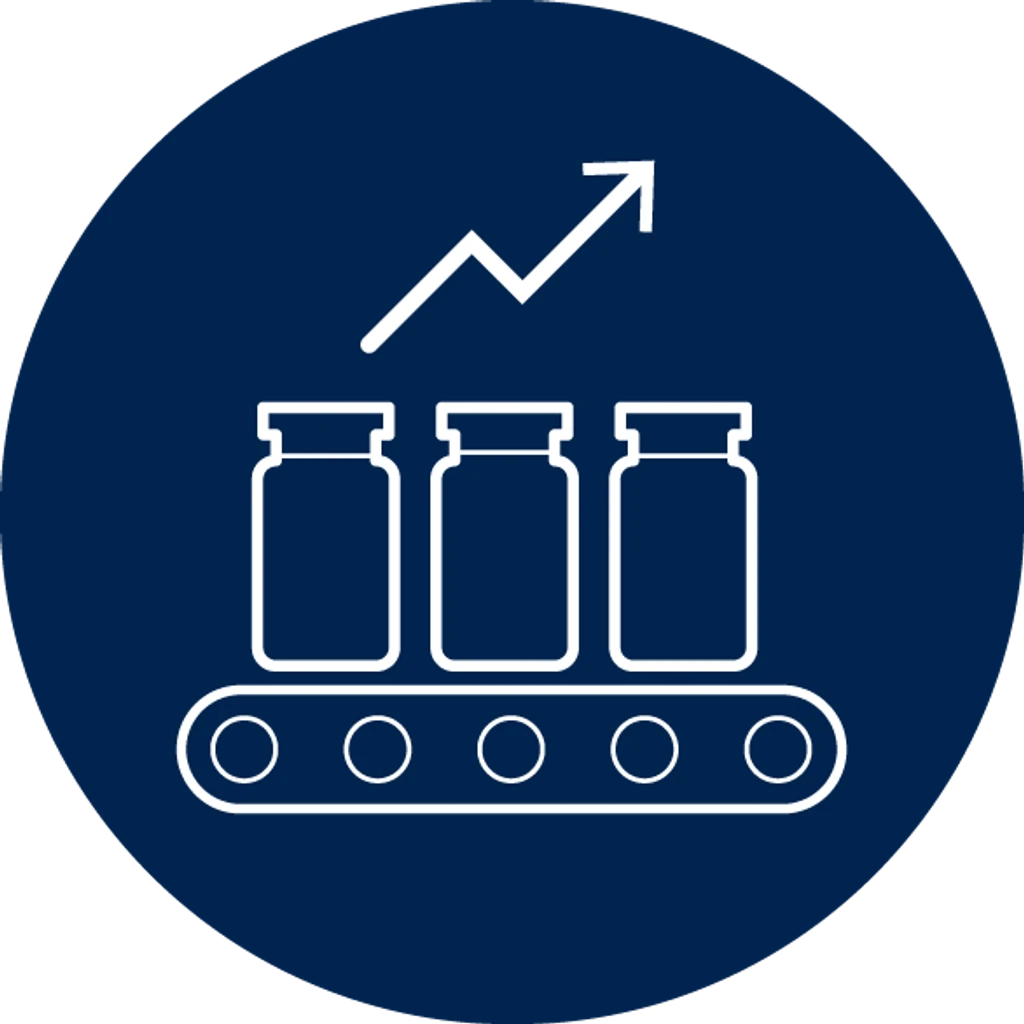Senegal helps to power Africa’s drive for vaccine independence
Global vaccine production has long been concentrated in a few regions, fuelling inequity during the COVID-19 response as countries without manufacturing capacity faced significant delays in accessing life-saving doses. To help prevent a repeat of this inequity and strengthen global pandemic preparedness, CEPI is backing Global South vaccine manufacturing partners on three continents to boost sustainable vaccine production and rapid-response capabilities, particularly in underserved regions.
CEPI spoke with one of its manufacturing partners in Senegal to learn more about how this partnership is helping scale up Africa’s capability to produce vaccines, both for routine immunisation and in preparation against a future pandemic pathogen.
___________
Each week in Senegal’s lively capital city, Dakar, a team of technicians waits patiently at IPD’s loading facilities for a delivery to complete its 5,000-kilometre journey from Germany. This precious cargo contains just one product: eggs. But these are not just any eggs. These pathogen-free eggs are the ones in which the antigens for IPD’s Yellow Fever vaccines are grown.
For more than 80 years, IPD, or Institut Pasteur de Dakar, has produced the continent’s only World Health Organization-prequalified Yellow Fever vaccine. Now, with lessons learned from COVID-19, this expertise is being expanded like never before, helping to manufacture vaccines for both known diseases and respond to future emerging novel pathogens—also referred to as Disease X.

“IPD has been engaged in every public health emergency of international concern over the past decade and has supported more than 40 countries in Africa and Latin America with laboratory testing, pathogen genomics, and outbreak response,” says Dr Joe Fitchett, Senior Adviser at IPD. Going forward, Dr Fitchett says the goal of IPD is to extend this expertise to also produce equitably accessible vaccines that can combat a range of disease threats, working with partners like CEPI and the Gates Foundation to realise this ambition.
The hope is that this expanding capability and manufacturing capacity will offer Africa greater security against the scourge of infectious diseases, particularly pandemic outbreaks.
Crucially, it will also go some way to reducing the risk of repeating the unacceptable vaccine inequity that characterised the global COVID-19 pandemic response. As wave after wave of COVID-19 infections spread around the world, the African continent—with its limited vaccine manufacturing capacity and constrained access to timely procurement of doses—was left reliant on others for vaccines. Unable to manufacture critical COVID-19 vaccines at the scale required to meet the population’s needs meant millions of people in Africa were left unprotected.
In response to this inequity, IPD and CEPI signed a 10-year partnership in 2023 to boost vaccine production in the region. Dr Fitchett describes the partnership as a “profound” commitment by both organisations to health equity in Africa and Global South countries. Under the partnership, IPD will ensure a significant proportion of its facility is dedicated to making lifesaving and life-improving vaccines available in low-income settings during future public health emergencies.
A key step towards boosting African vaccine production was the establishment of IPD’s new Vaccine Research Center. Established and headed by Dr Marie-Angélique Sène, with a team of more than 50 staff, the Center will support vaccine research from discovery to commercial production.
The Center’s state-of-the-art equipment includes new industrial-scale bioreactors—a sort of high-tech greenhouse that offers perfect growing conditions for some of the key ingredients needed for vaccines, such as antigens. Construction of these new CEPI-funded bioreactors—up to 600 square metres in size—means that vaccine production capacity could increase 87-fold.
This scaled-up capacity means that IPD could adapt quickly in case of new outbreaks, explains Dr Sène, and better serve the continent, where millions of vaccines might be needed. Indeed, in the future, IPD believes that, in the event of a pandemic, it could pivot to produce up to one billion vaccines.

Aside from expanding the sheer number of vaccines produced, diversifying beyond IPD’s established Yellow Fever vaccine production capabilities is also a key tenet of its future growth and health security in Africa.
“During COVID-19, we realized that vaccine sovereignty is crucial for our health security,” says Dr Sène, recalling how during the pandemic, routine immunisations like Measles and Rubella were disrupted in Africa—leading to a spike in cases—due to healthcare system strains and vaccine supply chain issues caused by lockdowns, travel restrictions and resource diversion.
“CEPI is supporting us to expand our capacity, helping integrate new and more efficient platforms, like cell culture technology for viral-vector vaccine production.” This technology, alongside a strengthening vaccine supply chain, Dr Sène says, helps IPD diversify its vaccine portfolio to better prepare for pandemics. At the same time, it will help boost access to routine immunisations in Africa by eventually aiming to produce over 300 million routine vaccines annually.
This platform approach offers much greater flexibility, too, according to Sène. “We invest in platforms that can be adapted for several candidate vaccines. That way, we can manufacture a whole portfolio of vaccines. Instead of investing in one candidate and then another, which is time and resource-intensive.”
IPD is now applying its new capabilities and capacity in cell culture technology to manufacture routine immunisation vaccines for Measles and Rubella. The cell culture technology is also being considered by IPD for other endemic threats such as Lassa fever and certain filoviruses, including Marburg virus. Another novel platform being explored by IPD with new CEPI-supported equipment is mRNA, with applications to Rift Valley fever and Congo-Crimean Haemorrhagic Fever vaccines.
Taken all together, this scaled-up production ability and platform diversification, which facilitate greater routine immunisation and outbreak response capabilities and capacity building, are paramount to the sustainability and longevity of IPD, meeting the demand for “vaccines that are affordable and available to Africa’s growing population,” said Dr Fitchett.
The Africa Centres for Disease Prevention and Control predicts that vaccine demand in Africa will rise from 1.4 billion doses to over 2.1 billion by 2040. It’s expected that IPD’s growing and sustainable vaccine manufacturing capability will not only generate vaccines needed for Senegal but also position the West African nation as a regional vaccine hub, capable of providing vaccines to the rest of Africa, and beyond where necessary.
Africa is not the only region where vaccine demand is set to grow or be potentially squeezed in response to future outbreaks. That’s why CEPI supports five Global South vaccine manufacturers, each with priorities aligned to their regional needs. All share the ultimate goal of ensuring vaccines can be equitably and rapidly accessed through an expanded global vaccine manufacturing footprint, and all have committed to reserve manufacturing capacity to supply vaccines to Global South regions during future outbreaks.
Joining IPD as a CEPI-preferred vaccine manufacturing partner are Indonesia’s Bio Farma; Serum Institute in India; Aspen in South Africa; and Fiocruz in Brazil.
2.1 billion
Africa’s vaccine needs are projected to grow from 1.4B to 2.1B doses by 2040
87 fold
Increase in IPD vaccine production capacity due to CEPI-funded bioreactors
5
Number of CEPI Global South manufacturing partnerships helping boost global vaccine access



